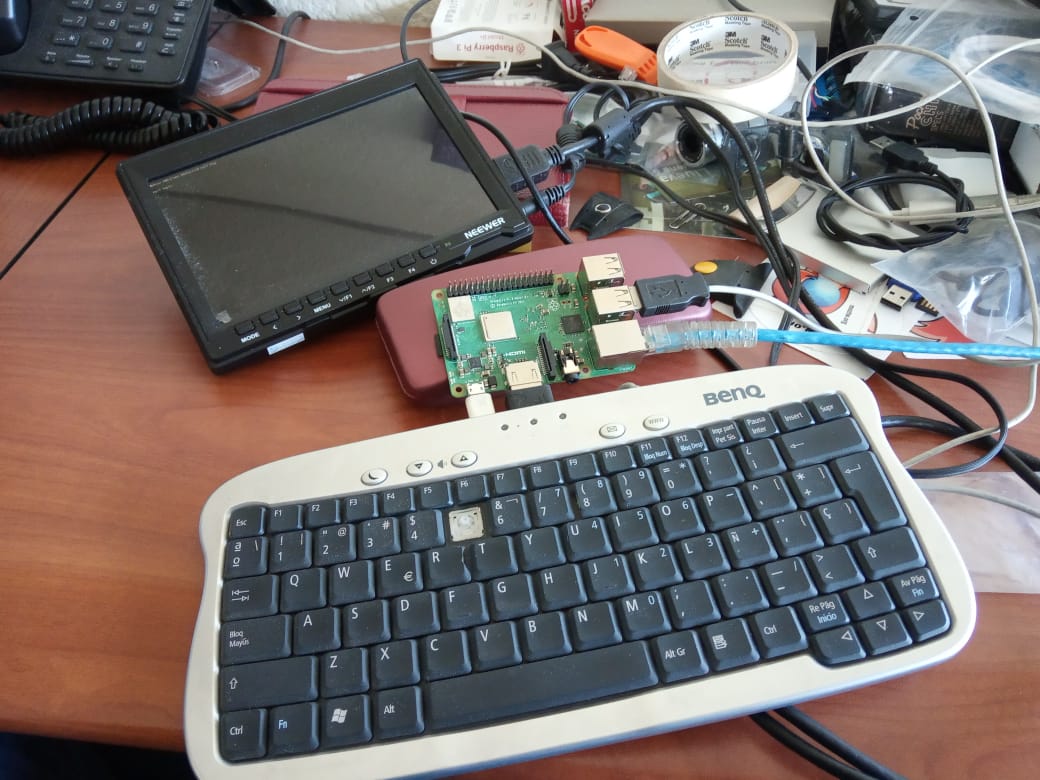Raspberry Pi 3 Debian Buster *unofficial preview* image update
As I mentioned two months ago, I adopted the Debian Raspberry 3 build scripts, and am now building a clean Buster (Debian Testing) unofficial preview image. And there are some good news to tell!
Yesterday, I was prompted by Martin Zobel-Helas and Holger Levsen to prepare this image after the Buster Debian Installer (d-i) alpha release. While we don’t use d-i to build the image, I pushed the build, and found that…
I did quite a bit of work together with Romain Perier, a soon-to-become Debian Maintainer, and he helped get the needed changes in the main Debian kernel, thanks to which we now finally have working wireless support!
Romain also told me he did some tests, building an image very much like this one, but built for armel instead of armhf, and apparently it works correctly on a Raspberry Pi Zero. That means that, if we do a small amount of changes (and tests, of course), we will be able to provide straight Debian images to boot unmodified on all of the Raspberry lineup!
So, as usual:
You can look at the instructions at the Debian Wiki page on
RaspberryPi3. Or you can just jump to the downloads, at my
people.debian.org:
xzipped image (403MB, unzips to 1.5GB, and resizes to the capacity of your boot SD at first boot)verification sha256sumPGP-signed verification sha256sum
Enjoy!
[update (06/2020)] I am leaving the above links as they were, as I am kind of a preservation geek. I have moved the images — Now they are generated on a daily basis. Please go fetch them instead from https://raspi.debian.net/.
Attachments
raspi3.jpg (116 KB)
Comments
Aditya Govardhan 2019-07-20 20:17:09
Experimentation with QEMU and Raspberry Pi
I have been trying for long to emulate Raspberry Pi (2 or 3) but still with no success.
My final goal is to emulate official Raspbian images (which are 32 bit till now) provided by Raspberry Pi org, on raspi2 or raspi3 machine types provided by QEMU.
Using raspi2 or raspi3 is not a hard requirement (I can use virt too) but using official Raspbian images is a hard requirement.
I have some doubts and would really appreciate if you could answer them:
1) Unofficial preview images provided by Debian are 64 bit only? And no 32 bit version of it are out yet? If not, then can you please provide me resources on how can I compile one?
2) The qemu machines take -kernel -initrd -cmdline and -dtb as inputs. Since Raspberry Pi’s booting order is different than the standard one, I am not able to understand how to provide these params. Can you please comment on how do I approach on using Raspbian like debian-armhf works?
Thanks and than you very much for the Debian raspberry pi unofficial images!
Gerard Vignes 2019-02-06 12:13:12
Alternative to Laptop+Win10
I’m not happy with the approach taken by Windows 10, or the fact that you can scarcely buy a PC without having it pre-installed. I’m seriously considering switching to the Raspberry PI as a general-purpose computing environment. There are two problems: (1) memory limit, where more RAM => greater cost (geometric growth ouch!!!) and (2) usb 2.0, where I can’t understand why usb can’t be taken to the fastest possible speed? You can cheat on the power requirements, requiring a powered usb 3.x hub for external hard drives and other power-hungry peripherals. That would not be too expensive, and it would greatly increase the range of practical options.
gwolf 2019-02-06 20:32:06
Design decisions, different markets
There are ready-made Linux-friendly laptops in the ARM world, the first that comes to my mind is the Pinebook. But, yes, they come with 2GB RAM, non-expandable. This is because ARM chips are often volume-built as system-on-a-chip, and lack the expansion for external RAM. That’s also the reason why you cannot put more than USB 2.0 connectivity: It’s capped at the SoC level. This category of devices are optimized for ① low power consumption and ② low cost. Designing and producing a SoC is too expensive (and that’s why Raspberry went with the fine-but-terribly-closed-down Broadcom, and many others have employed i.MX6, Allwinner’s A10/A20/A53/…)
PiRX 2019-02-08 00:11:51
Hi! Seems that the URLs in
Hi!
Seems that the URLs in your RSS feed are broken
Scott Ashcroft 2019-02-07 12:13:22
Weird base64 encoding of wifi firmware
Is there anything I can do to help fix:
https://bugs.debian.org/cgi-bin/bugreport.cgi?bug=897234
I think that’s the last piece of the jigsaw so people can upgrade existing images to get wifi working rather than having to do a rebuild from the new images.
